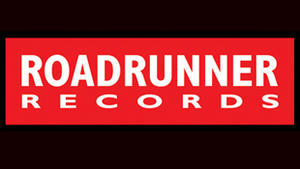Dear Record Label: With Email, Where Is the Line Between Persistent and Proactive?

In a band? Have no idea how to go about getting a label to take you seriously? We've got the answers you're looking for.
In our blog series, "Dear Record Label," we went to Roadrunner Records -- home of Slipknot, Rob Zombie, Opeth, Megadeth, Kenny Wayne Shepherd, Trivium and more -- and asked them the tough questions young bands should know the answers to. Each week, we'll be bringing you advice from members of the Roadrunner staff to try and get you on track to get noticed.
Q: As far as email is concerned, where is the line between being persistent/proactive and being annoying when seeking press coverage?
AMY SCIARRETTO: This is a line you have to toe delicately, and unfortunately, there is no exact science or patented formula that will work every time and like a charm. You can't predict when the line is crossed simply because editors and journalists have different levels of tolerance for being pitched. Different strokes, different folks.
If you cross the line between persistent and proactive and drift into annoying territory, you could have been thisclose to a piece of coverage and lose it. By coming on too strong or even too passive aggressively, you can cause the communication to break down and the press consideration and coverage to go away.
Follow these simple rules:
1) Make friends with your local editors/writers/programmers. They will invest in your band and in turn, want to support you.
All the latest guitar news, interviews, lessons, reviews, deals and more, direct to your inbox!
2) When making a cold pitch via email or phone, be nice. Be yourself. Say "please" and "thank you." Try not to say the same thing every other band says – show some originality. The old line "We are going to be huge, you need to hear this" is stale.
3) Hitting someone up on email, then Facebook, then LinkedIn, then via text, then with a phone call and then (God forbid) via MySpace is not the approach to take. That's called being a "punisher." Don't do it. Everything in moderation is a better approach. Be nice, be polite and pitch yourself like you would be when going after a job. Send the music. Follow up once. Follow up twice. But don't take a hammer and smash away at a potential contact. If you don't already have a relationship with a media type (and this is why you have a publicist, to facilitate/foster /handle said relationships), don't ruin a potential one by coming on too strong. The media won't feel like they owe you anything, so don't treat them like they do. Instead, realize their job is to report and cover music, and that they like what they do, and chances are, they may want to cover your music. You just have to handle it professionally and proactively, without being all up in their grill.
4) If you have a relationship, you can massage it. If you want an outlet to cover your new song, offer to let them stream it so they can have corresponding web coverage or another piece of content. Offer to reveal the cover art for your new album or your new press shot. Tying it into another element of content is the best way to go.
5) Did I mention don't hit someone multiple times a day on every possible social networking outlet or digital means? If they've not solicited the material, they aren't going to want to be hounded about it. So be polite and strategic.
And if you're an unsigned band, be sure to check out Roadrunner's Sign Me To website, which allows unsigned bands to display their music, move up charts based on fan ratings, get reviewed by Roadrunner staff and maybe even get signed!
![B.B. King [left] cups his hands to his ear as he asks the crowd for more. Joe Bonamassa, with a Les Paul, gives his crowd a thumbs up](https://cdn.mos.cms.futurecdn.net/P3XrQLh86C27JfPp4AGp6n.jpg)